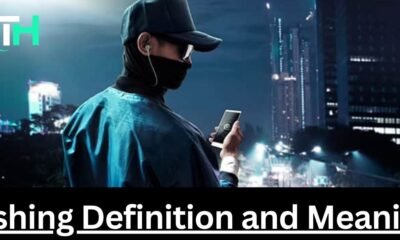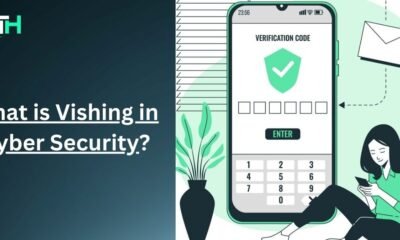Vishing attack
Your Ultimate Guide to Prevent Vishing Attacks in 2025
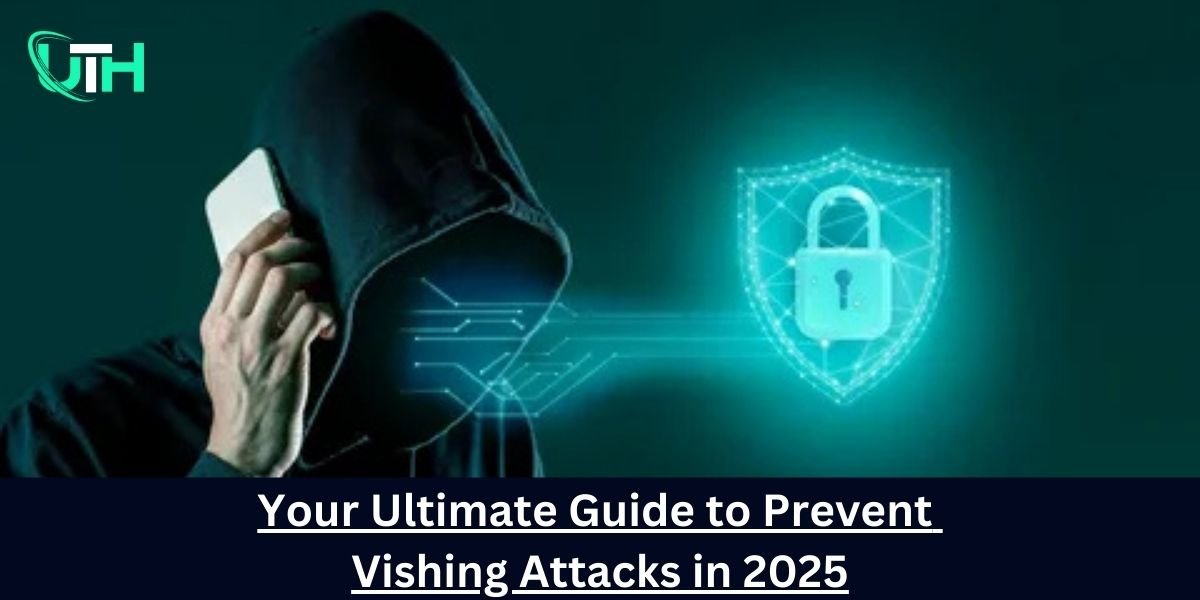
Social engineering fraud has become even more prominent in 2025 with modern tactics such as AI deepfakes. Ignoring cybersecurity threats and every other alert your phone tells you is another step closer to digital fraud. Vishing is one of the social engineering tactics which attempts to steal user data or financial information. Moreover, access to AI tools allows attackers to trick people and carry out their illicit activities easily.
Vishing is a cybercrime that needs proper addressing to prevent digital fraud. It is an increasing risk for people as well as businesses as AI deepfakes have become very similar to legitimate voices. According to Statista, over 60% of companies have reported vishing attacks (over both phone calls and voice messages) in 2024.
This blog will explain vishing in detail, describing its process and key methods or precautions to safeguard your sensitive data from this rising social engineering attack.
What is Vishing?
First things first, the definition. So, What is Vishing? It combines two words “voice” and “phishing.” You can call it voice phishing collectively, but most people prefer vishing. It is a type of phishing attack in which attackers use voice messages or calls.
It is a social engineering attack in which attackers attempt to get most of the user’s data via a phone call. Vishing attackers mostly target untrained/unaware groups of people or businesses. They aim to get sensitive data to use it for their illicit needs. For instance, when attackers target a business, they tend to ask questions that trick the employees like making tempting offers. “What is your current internet speed? Do you wish to upgrade for free? Can you give us your ID for registration? What is your credit card number? Please.”
All these sorts of questions carry one purpose which is to steal data such as passwords, business information, or credentials. The alarming thing is that vishing attacks WORK, even in 2025!
Types of Vishing
AI Vishing
In 2025, vishing has become a significant threat especially due to the wide access of AI. With these intelligent tools, anyone can clone any voice and mimic real people easily. This is a big alarm for people and businesses that involve high amounts of voice calls.
Let’s elaborate further. Suppose you work in a software company and one day you get a call from an unknown number. When you pick up you hear your director ordering you to back up all the data as there is some sort of issue. He says, I’m sending you a link, upload the backup to the cloud, and join the meeting in an hour. At first glance, you recognize his voice and start to do what he asks. Being a good worker, you quickly back up all the files and hand them over to your IT Director, right?
Here comes the risk as you never verified the identity just because you recognize the voice. There goes all your data from business information to client passwords and assets. This is one of the examples of vishing attacks and these types of calls are becoming more and more common, thank you technology (AI)!
Robocalls
Robocall is another form of vishing that is common in the market. Nowadays, people trust calls from a computer and guess that they are representative of an authorized business. The finance sector also uses computerized calls to verify OTPs. This is where we get the loophole, as many software programs nowadays can generate robocalls for vishing. These solutions use ID spoofing to make the user believe that they are speaking on behalf of a legal authority, such as the bank. Many people fall for this trap and give away their details allowing the attackers to hijack their accounts and steal their finances.
VOIP
Call eavesdropping is another type of vishing attack. In this type, the attackers intercept calls or use a spoof ID to exploit the VOIP network protocol. This leads to privacy breaches and data leaks for businesses. Using proper encryption can help businesses to prevent VOIP vishing attacks.
Difference between Vishing, Phishing, and Smishing
Vishing or voice phishing is often confused with other similar terms such as phishing and smishing. As you already know what vishing is, let’s understand what the other terms indicate.
Phishing
Phishing is a concept that refers to techniques for obtaining users’ sensitive data via emails. All the spam emails you receive asking for your personal data are phishing emails. The key difference between vishing and phishing is the medium. However, the main purpose of both attacks is to obtain sensitive data, one via email and the other via a phone call or a voice message.
Smishing
Smishing is a word that comes from SMS or text messages. It is closely related to vishing attacks and the key difference is voice and text message. All those messages that usually promise large prizes on clicking on the link are smishing attacks. Getting an OTP for your account login from an unverified source is a type of smishing attack.
Vishing Attack Process – How Attackers Execute the Strategy
People who attempt vishing attacks are not the typical phone pranksters as a lot of research and homework is behind every attack. Here are the 4 key steps of a general vishing attack.
- The first step first, the research! Attackers usually target victims with a strong digital background. They start their research by filtering people with online data. Once the financial and business emails and contact numbers are scraped from the original sources vishing criminals start to call people’s cell.
- The phone call is the second step which aims to gain your trust. They ensure faking the area code to match the victim’s location which makes it trustworthy. Once the user thinks that it’s a local phone call they believe it’s a legitimate business or institution.
- Now that the criminal has got your attention, their next step is to trick and play brain games. Depending on their plan or your business or personal profile, they can offer prizes, free subscriptions, and bonus coupons to get your greedy side running.
- Once they trap you in their fake propaganda, the next stage is asking for credentials. Vishing criminals will now ask for your personal data starting from your other mobile number as backup. Then they proceed to your banking details, such as credit card numbers and other PIN codes.
- Lastly, it is a nightmare! You get a message from your bank about transactions draining your bank account in a matter of hours.
Key Examples of Vishing
Some key examples of vishing scams that should ring a bell for you are as follows.
- Health insurance advantages plan
- Winning prizes in a lucky draw
- Social security insurance plans
- Special loan offers
- Free tech support for your business
- Impersonation scams by becoming a banking officer
- Social data breach via friendly pranks
How to Prevent Vishing Attacks
There are many easy ways to prevent vishing attacks. Here are a few of them:
Understand Everyone is Not Your Friend
Awareness is key to avoiding unknown phone calls. Understand that the digital world is not as secure as it seems and many bad actors are looking for every possible opportunity to exploit the system. Training your employees, friends, and family about vishing practices is key. Understand that everyone is not your friend and will never give you benefits.
Call Blocking
Using call-blocking software can also help block vishing attacks. Don’t always pick up calls from unknown numbers, rather check for their authenticity. If not on your list and the caller ID checks and bothers you by calling several times, just block it immediately.
Always Be Skeptical
Once you are on a call with a bank representative or some health insurance advisor, don’t trust them right away. Always be skeptical and ask them counter-questions. They might know your name or your email address, but not other details. Ask the purpose of their questions, ask details of the bank, and why they need to approach. Being skeptical can help you prevent vishing attacks and recognize the real identity of the person behind the call.
Never Share Sensitive Data
Banks, financial institutions, health insurance providers, and all other legal authorities never ask for your sensitive data on a phone call. And if someone does so, it’s a vishing criminal trying to get their hands on your sensitive information and use it for illicit means. So never share anything on a phone call. Always insist on visiting in person or just say, “I’ll visit the bank tomorrow and discuss this policy in detail.”
Keep the Legal Authorities Updated
Vishing attacks are becoming common with the advent of technology. To prevent them, it is necessary to keep the legal authorities updated about any fake calls you receive. Directly report it to the respective cybercrime agency of your area.
Conclusion
Just like phishing and smishing, vishing is another type of social engineering cyber attack that is becoming a new threat. Keeping yourself and others updated about this threat is a social responsibility to help everyone stay safe. Also, if anyone tries to ask about your personal data, always report the number to the authorities. WhatsApp and other chat platforms are also the medium for vishing attacks. Getting messages and voice notes on WhatsApp is never legitimate. Stay aware, and stay vigilant to these messages and phone calls to prevent data loss.
FAQs
1. What is the difference between phishing, vishing, and smishing?
Phishing primarily uses email communication as the medium of attack, while vishing is phone call phishing and smishing uses SMS or text message to get user’s data.
2. What is the aim of the vishing attack?
The attackers have two aims, one is to get the trust of the user, (for long-term vishing) and the second is to get their data right away and drain their banking and social savings.
3. Which tools are key in a vishing attack?
AI software that impersonates the voice of other people is the key tool in modern vishing attacks. VOIP and robocalls are also common tools that are used in vishing attacks.
-

 Phishing attack8 months ago
Phishing attack8 months agoWhat is Spear Phishing and How You Can Identify This Scam?
-
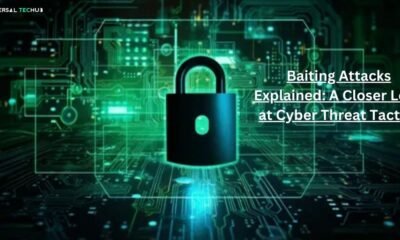
 Social engineering attack10 months ago
Social engineering attack10 months agoBaiting Attacks Explained: A Closer Look at Cyber Threat Tactics
-

 Social engineering attack8 months ago
Social engineering attack8 months agoWhat are Social Engineering Attacks – A Complete Guide to Cyberattacks Prevention
-

 Social engineering attack9 months ago
Social engineering attack9 months agoSpear Phishing Attack: A Targeted Cyber Threat
-
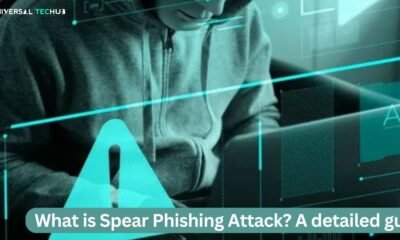
 Social engineering attack10 months ago
Social engineering attack10 months agoWhat is spear phishing attack? A detailed guide
-
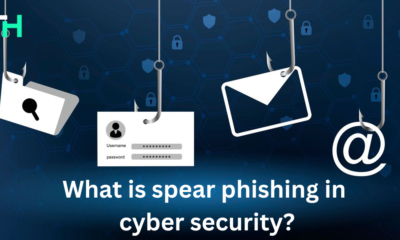
 Social engineering attack10 months ago
Social engineering attack10 months agoWhat is spear phishing in cyber security?
-
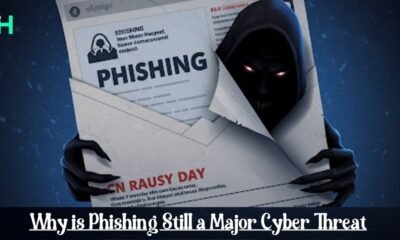
 Phishing attack4 months ago
Phishing attack4 months agoWhy is Phishing Still a Major Cyber Threat? Everything You Need to Know
-
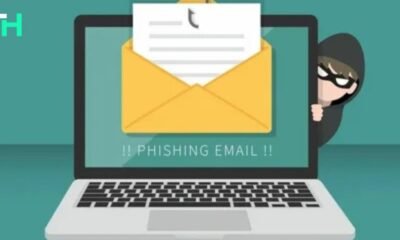
 Phishing attack8 months ago
Phishing attack8 months agoWhat Are Phishing Emails? A guide for you




